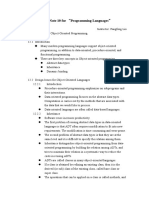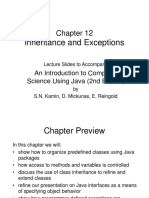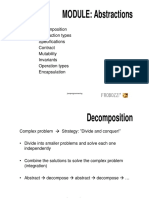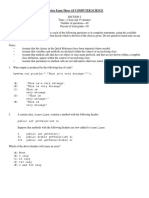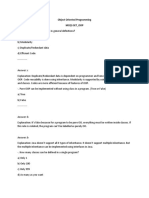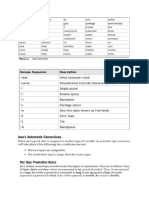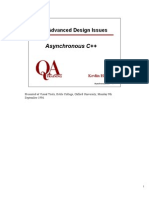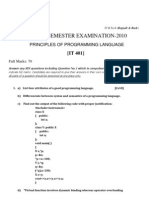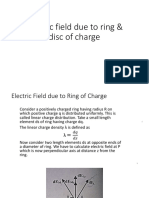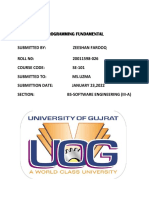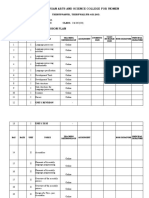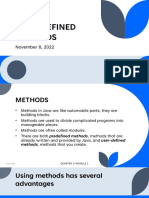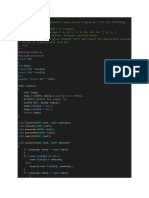0% found this document useful (0 votes)
70 views9 pagesFormal Methods - Lecture 16
The document discusses class invariants in object-oriented programming. A class invariant is a global property that must be true for all instances of a class at stable times, such as after object construction or method calls. Constructors and methods must preserve the class invariant. Inherited classes combine the invariants of parent classes with their own invariants. Method redeclarations in subclasses can only weaken preconditions and strengthen postconditions compared to the original methods.
Uploaded by
Zeeshan FarooqCopyright
© © All Rights Reserved
We take content rights seriously. If you suspect this is your content, claim it here.
Available Formats
Download as PPT, PDF, TXT or read online on Scribd
0% found this document useful (0 votes)
70 views9 pagesFormal Methods - Lecture 16
The document discusses class invariants in object-oriented programming. A class invariant is a global property that must be true for all instances of a class at stable times, such as after object construction or method calls. Constructors and methods must preserve the class invariant. Inherited classes combine the invariants of parent classes with their own invariants. Method redeclarations in subclasses can only weaken preconditions and strengthen postconditions compared to the original methods.
Uploaded by
Zeeshan FarooqCopyright
© © All Rights Reserved
We take content rights seriously. If you suspect this is your content, claim it here.
Available Formats
Download as PPT, PDF, TXT or read online on Scribd
/ 9




